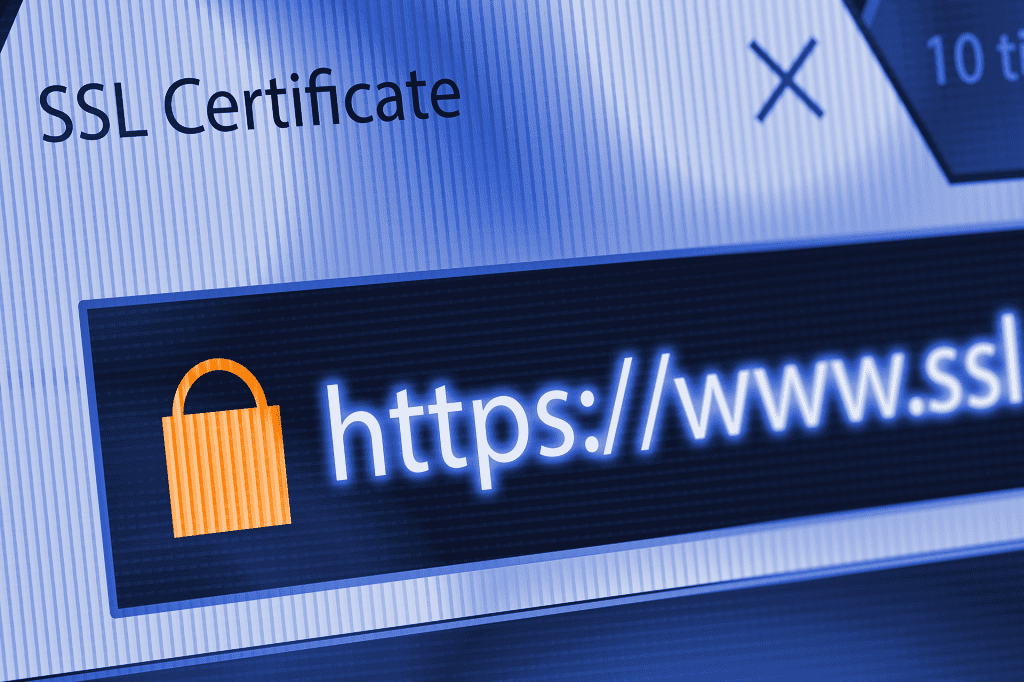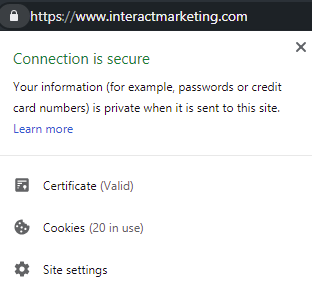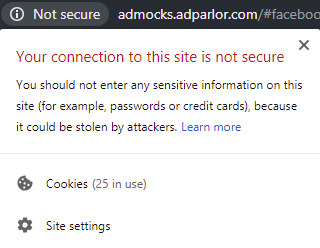Launching your website is a huge step for business owners. You agonize over the site’s copy, the feeling conveyed by the images on your homepage, and overall user experience. You take the recommended security precautions by ensuring your login page isn’t publicly accessible and that you’ve chosen a better username than “admin”. Still, there is one important step that many sites still lack despite a 2014 announcement that came straight from Google: all sites should have an SSL certificate.
SSL Certificates in Layman’s Terms
An SSL certificate encrypts the data users share through their browser with your site via a contact form or login page. Essentially, it creates a secure connection for anyone who accesses your site. The SSL certificate is installed on a web server for your domain, which switches your URL from http://www.yourdomain.com to https://www.yourdomain.com, known as HTTPS protocol. When installed correctly, your browser will tell you that your site has been secured.
Many website owners doubt that an SSL certificate is necessary for their small to mid-sized business that doesn’t collect a lot of user data, except for maybe a contact form. Here are a few more reasons you should install an SSL certificate:
- HTTPS is a significant ranking signal
- Protecting user data is not only ethical, but can be enforceable by law
- The “secure” message in the browser makes your site appear more authoritative and secure
HTTPS is a Ranking Signal
Google rarely reveals what could help a site rank higher in their search results. However, in 2014, they posted an article on the Google Webmaster Central Blog that HTTPS is a ranking signal. The decision was made to encourage secure practices across the web to protect user data. If you are in an industry where some of your competitors have outdated websites and lack attention to details like this, you might get a significant bump in organic traffic just by improving your rankings through the SSL certificate installation.
Protecting User Data
Legislation like Europe’s GDPR and California’s CCPA show a growing trend toward regulating the tech industry and being more aggressive in protecting user data. As these laws are put into practice, business owners need to take proper precautions to use data ethically. This includes, but is not limited to, protecting data through encryption. Installing an SSL certificate is a first and vital step in protecting both the user and your business.
Website Authority
When you’re browsing a site, the last thing you want to see is that your information is vulnerable to a cyber attack. The “Not secure” message is very visible when someone browses a site that hasn’t installed an SSL certificate, and it could damage your business’s reputation.
Here are the most important steps in correct installation of an SSL certificate:
When your SSL certificate is installed, and your site changes from the HTTP version to the HTTPS version, the old and new URLs are technically two different sites. It is incredibly important that all HTTP URLs are redirected to HTTPS through a permanent 301 redirect. If this is not done, any backlinks you’ve built over time will no longer point to your site, which could hurt SEO efforts. Additionally, be sure to update the robots.txt file and the domain in your Google Search Console for uninterrupted tracking.
If your site does not have an SSL certificate properly installed, contact your webmaster. Otherwise, the web team at Interact Marketing is happy to assist.





